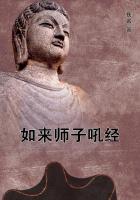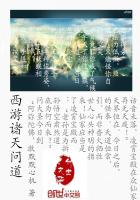On the other hand,there are those who have given a splendid example of a brave and dignified death.Brodie was a sorry bungler when at work,but a perfect artist at the gallows.The glory of his last achievement will never fade.The muttered prayer,unblemished by hypocrisy,the jest thrown at George Smitha metaphor from the gamingtablethe silent adjustment of the cord which was to strangle him,these last offices were performed with an unparalleled quietude and restraint.Though he had pattered the flash to all his wretched accomplices,there was no trace of the last dying speech in his final utterances,and he set an example of a ****** greatness,worthy to be followed even to the end of time.Such is the type,but others also have given proof of a serene temper.Tom Austin's masterpiece was in another kind,but it was none the less a masterpiece.At the very moment that the halter was being put about his neck,he was asked by the Chaplain what he had to say before he died.`Only,' says he,`there's a woman yonder with some curds and whey,and Iwish I could have a pennyworth of them before I am hanged,because I don't know when I shall see any again.'There is a brave irrelevance in this very human desire,which is beyond praise.
Valiant also was the conduct of Roderick Audrey,who after a brief but brilliant career paid his last debt to the law in 1714.
He was but sixteen,and,says his biographer,`he went very decent to the gallows,being in a white waistcoat,clean napkin,white gloves,and an orange in one hand.'So well did he play his part,that one wonders Jack Ketch did not shrink from the performance of his.But throughout his short life,Roderick Audreythe very name is an echo of romance!displayed a contempt for whatever was common or ugly.Not only was his appearance at Tyburn a lesson in elegance,but he thieved,as none ever thieved before or since,with no other accomplice than a singingbird.Thus he would play outside a house,wherein he espied a sideboard of plate,and at last,bidding his playmate flutter through an open window into the parlour,he would follow upon the excuse of recovery,and,once admitted,would carry off as much silver as he could conceal.None other ever attempted so graceful an artifice,and yet Audrey's journey to Tyburn is even more memorable than the story of his gay accomplice.
But it is not only the truly great who have won for themselves an enduring reputation.There are men,not a few,esteemed,like the popular novelist,not for their art but for some foolish gift,some facile trick of notoriety,whose actions have tickled the fancy,not the understanding of the world.The coward and the impostor have been set upon a pedestal of glory either by accident or by the whim of posterity.For more than a century **** Turpin has appeared not so much the greatest of highwaymen,as the Highwaymen Incarnate.His prowess has been extolled in novels and upon the stage;his ride to York is still bepraised for a feat of miraculous courage and endurance;the death of Black Bess has drawn floods of tears down the most callous cheeks.And the truth is that Turpin was never a gentleman of the road at all!Black Bess is as pure an invention as the famous ride to York.The ruffian,who is said to have ridden the phantom mare from one end of England to the other,was a common butcher,who burned an old woman to death at Epping,and was very properly hanged at York for the stealing of a horse which he dared not bestride.
Not one incident in his career gives colour to the splendid myth which has been woven round his memory.Once he was in London,and he died at York.So much is true;but there is naught to prove that his progress from the one town to the other did not occupy a year.Nor is there any reason why the halo should have been set upon his head rather than upon another's.Strangest truth of all,none knows at what moment **** Turpin first shone into glory.At any rate,there is a gap in the tradition,and the chapbooks of the time may not be credited with this vulgar error.Perhaps it was the popular drama of Skelt which put the ruffian upon the black mare's back;but whatever the date of the invention,Turpin was a popular hero long before Ainsworth sent him rattling across England.And in order to equip this butcher with a false reputation,a valiant officer and gentleman was stripped of the credit due to a magnificent achievement.For though Turpin tramped to York at a journeyman's leisure,Nicks rode thither at a stretchNicks the intrepid and gallant,whom Charles II.,in admiration of his feat,was wont to call Swiftnicks.
This valiant collector,whom posterity has robbed for Turpin's embellishment,lived at the highest moment of his art.He knew by rote the lessons taught by Hind and Duval;he was a fearless rider and a courteous thief.Now,one morning at five of the clock,he robbed a gentleman near Barnet of 560,and riding straight for York,he appeared on the Bowling Green at six in the evening.Being presently recognised by his victim,he was apprehended,and at the trial which followed he pleaded a triumphant alibi.But vanity was too strong for discretion,and no sooner was Swiftnicks out of danger,than he boasted,as well he might,of his splendid courage.Forthwith he appeared a popular hero,obtained a commission in Lord Moncastle's regiment,and married a fortune.And then came Turpin to filch his glory!















